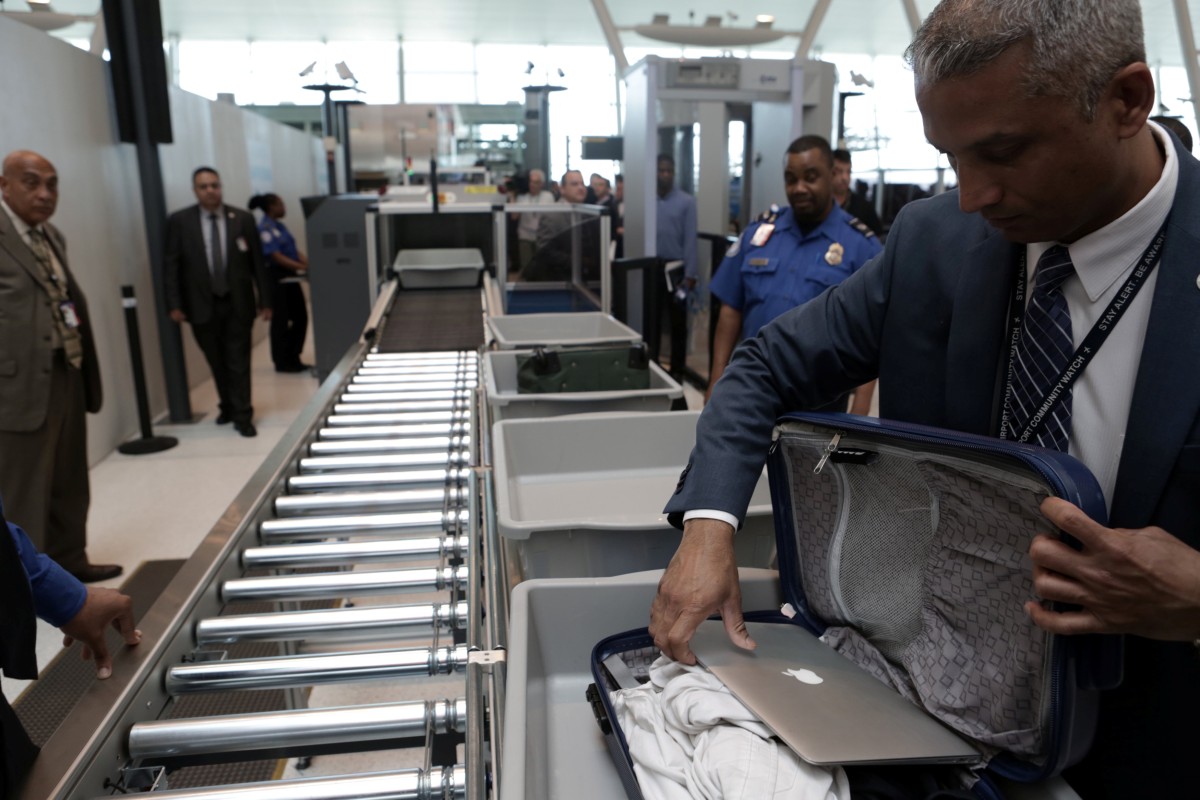
Airline representatives at an annual industry meeting in Mexico offer a range of predictions on how such a ban would affect passengers and carriers

A plan to expand a US ban on electronic devices on international flights has divided Asia’s major airlines, as they think of ways to ensure increased security does not deter passengers from flying.
At the annual summit of the International Air Transport Association (IATA) in Cancun, Mexico, some of Asia’s major carriers made a range of predictions on how Washington’s intention to enforce a worldwide ban on devices on planes to the United States would play out.
Rupert Hogg, Cathay Pacific Airways' new chief executive officer, said the airline would look at options with aviation and airport authorities to lessen the impact of a ban.
Speaking on the sidelines of the annual summit in the coastal resort city, he said “airlines like Cathay Pacific had a view that security was best preserved through a consultative process between airlines, regulators and governments”.
Hogg, attending his first IATA summit, acknowledged the risk that an expanded US electronics ban could affect travel demand. But he said a worldwide ban was not a foregone conclusion.
IATA calculates that a worldwide ban would cost the industry US$3.3 billion annually. The restrictions would hit 110 million passengers and 786,000 flights a year.
Japan Airlines however has differing views. The company’s chairman said his focus was on “securing the security and safety” of aircraft and passengers, and if that meant disrupting passenger convenience for short-term security gains, he believed the cautious stance was the correct one.
To that end, chairman Masaru Onishi said the ban should come first and airlines should then collectively work to provide a “safe space” for passengers before reintroducing electronic devices safely into aircraft cabins.
Malaysia Airlines chief executive Peter Bellew provided an alarming assessment. In his view, efforts to protect passengers from terrorism had been endangered by the risk of combustion of electronic devices stored in the cargo compartment of an aircraft.
After inviting his airline’s airport partners to discuss the matter in recent weeks, “it seems very evident to me, and it’s my opinion, I do believe from my analysis that it will not be an option to travel with your electronics at all”.
The industry is pushing back against the potential worldwide ban by arguing that bomb-detection technology, sniffer dogs and an array of other security screening options would be better than an outright ban.